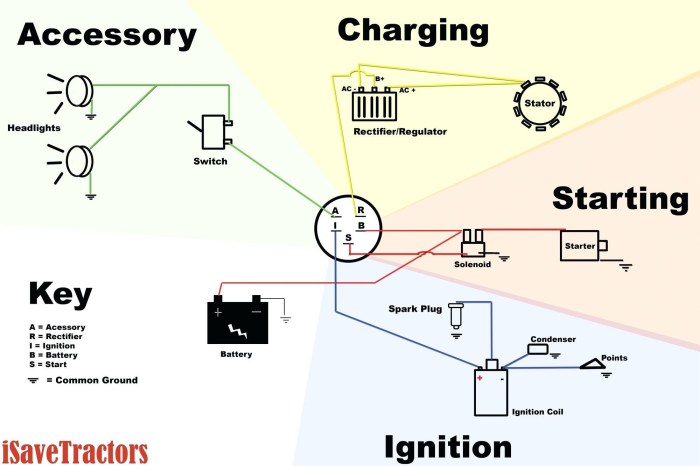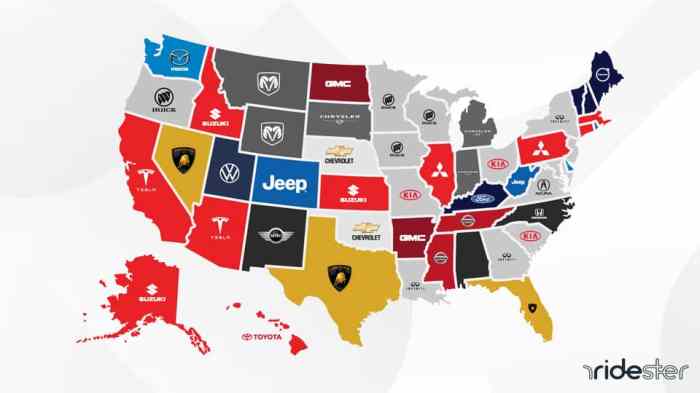Ray cupple bought a basic car – Ray Cupple’s recent purchase of a basic car has sparked discussions about the financial implications and factors influencing such a decision. In this article, we delve into the world of basic cars, exploring their costs, benefits, and maintenance requirements, while comparing them to other vehicle types.
We also examine the environmental impact of basic cars and provide answers to frequently asked questions.
Financial Implications of Basic Car Purchase
Purchasing a basic car can have a significant impact on your finances. It’s essential to consider all the potential costs involved before making a decision.
Purchase Price and Taxes, Ray cupple bought a basic car
The purchase price of a basic car can vary depending on the make, model, and features. You’ll also need to factor in taxes, which can add a substantial amount to the total cost.
Fees and Insurance
In addition to the purchase price and taxes, you’ll also need to pay various fees, such as registration fees, title fees, and inspection fees. You’ll also need to purchase insurance to protect yourself and your vehicle.
Maintenance and Fuel
Once you own a car, you’ll need to budget for ongoing maintenance costs, such as oil changes, tire rotations, and brake repairs. You’ll also need to factor in the cost of fuel, which can fluctuate depending on gas prices.
Depreciation
Depreciation is the decrease in value of a car over time. As soon as you drive a new car off the lot, it begins to lose value. This means that the car will be worth less than what you paid for it when you decide to sell it.
Financing Options
If you don’t have the cash to purchase a car outright, you may consider financing options such as loans or leases. Loans typically require a down payment and monthly payments over a set period of time. Leases allow you to drive a car for a set period of time without owning it, but you’ll typically have to make monthly payments and may have mileage restrictions.
Factors Influencing Basic Car Selection

When choosing a basic car, several key factors must be considered to ensure the best fit for individual needs and circumstances. These factors include budget, fuel efficiency, safety features, reliability, and maintenance costs.
Budget
Budget is a primary consideration when purchasing any vehicle. Determine the maximum amount you can afford to spend on the car itself, including taxes, registration fees, and insurance premiums. Consider both the down payment and monthly payments if financing is required.
Fuel Efficiency
Fuel efficiency measures how far a vehicle can travel on a gallon of fuel. This is an important factor to consider, especially if you drive frequently or have long commutes. Look for cars with good gas mileage ratings to save money on fuel costs.
Ray Cupple recently purchased a basic car, which he plans to use for his daily commute and occasional weekend trips. However, he’s also an avid cocktail enthusiast, and he’s eager to learn more about the different types of cocktail glasses available.
To that end, he’s been researching tipos de vasos de cocteleria (types of cocktail glasses) and has found a wealth of information on the subject. With this knowledge, Ray is confident that he’ll be able to impress his friends and family with his newfound bartending skills.
Safety Features
Safety features are crucial for protecting yourself and your passengers in the event of an accident. Consider cars with features such as airbags, anti-lock brakes, stability control, and lane departure warnings. These features can significantly reduce the risk of injury or fatality.
Reliability
Reliability refers to the likelihood of a car experiencing mechanical problems or breakdowns. Research different car models and brands to determine their reliability ratings. A reliable car will require less frequent repairs and maintenance, saving you money and hassle.
Maintenance Costs
Maintenance costs include expenses such as oil changes, tire rotations, brake replacements, and other repairs. Consider cars with lower maintenance costs to save money over the long term. Regular maintenance is essential for keeping your car running smoothly and safely.
Comparison of Basic Cars to Other Vehicle Types

Basic cars offer a cost-effective and practical mode of transportation, but they come with certain limitations compared to other vehicle types. This table compares the features, benefits, and drawbacks of basic cars against luxury cars, SUVs, and electric vehicles:
| Feature | Basic Car | Luxury Car | SUV | Electric Vehicle |
|---|---|---|---|---|
| Cost | Affordable | Expensive | Moderate to expensive | Moderate to expensive |
| Practicality | Good for daily commutes and errands | Less practical for large families or cargo | Versatile for families and outdoor activities | Limited range and charging infrastructure |
| Comfort and Features | Basic amenities and features | Luxurious amenities and advanced features | Spacious and comfortable interiors | Quiet and eco-friendly ride |
| Fuel Efficiency | Good fuel economy | Lower fuel economy | Moderate to low fuel economy | Zero fuel consumption |
| Environmental Impact | Lower emissions | Higher emissions | Higher emissions | Zero emissions |
Advantages of Basic Cars
Choosing a basic car offers several advantages:
- Lower cost:Basic cars are more affordable than other vehicle types, making them a good option for budget-conscious buyers.
- Better fuel economy:Basic cars typically have better fuel economy than larger vehicles, which can save you money on gas.
- Lower maintenance costs:Basic cars generally require less maintenance than more complex vehicles, further reducing your ownership costs.
- Practicality:Basic cars are well-suited for daily commutes and errands, providing reliable transportation without the need for excessive space or features.
Disadvantages of Basic Cars
There are also some disadvantages to consider when choosing a basic car:
- Limited features:Basic cars lack many of the amenities and features found in more expensive vehicles, which may be important for some drivers.
- Less comfort:Basic cars may not be as comfortable as larger vehicles, especially on long trips or for passengers.
- Less cargo space:Basic cars have limited cargo space, which may not be suitable for families or those who need to transport large items.
When to Choose a Basic Car
Basic cars are a good choice for those who prioritize affordability, fuel efficiency, and practicality. They are ideal for daily commutes, errands, and urban environments. Here are some real-world examples of scenarios where a basic car may be the most suitable choice:
- A college student on a budget who needs reliable transportation for commuting to class and running errands.
- A single professional who lives in a city and primarily uses their car for short trips within the urban area.
- A retiree who wants a low-maintenance and cost-effective vehicle for daily activities and occasional road trips.
Maintenance and Upkeep of Basic Cars

Maintaining a basic car is crucial for ensuring its longevity, safety, and performance. By adhering to the manufacturer’s recommended maintenance schedule, you can proactively prevent issues and extend the lifespan of your vehicle.
Regular maintenance typically includes oil changes, tire rotations, brake inspections, and other essential checks. These services help maintain optimal engine performance, ensure proper tire wear and handling, and guarantee the effectiveness of your braking system.
Common Maintenance Issues and Preventive Measures
Basic cars may encounter common maintenance issues such as:
- Battery problems:Ensure regular battery inspections and replacements as needed.
- Tire wear:Maintain proper tire pressure and alignment to prevent uneven wear and extend tire life.
- Brake wear:Pay attention to brake performance and have them inspected and replaced when necessary.
- Fluid leaks:Regularly check fluid levels (e.g., oil, coolant) and address any leaks promptly.
By following the manufacturer’s guidelines and addressing these common issues, you can keep your basic car in good condition and avoid costly repairs in the long run.
Fuel Efficiency and Environmental Impact of Basic Cars

Basic cars are generally known for their affordability and practicality, but they also offer advantages in terms of fuel efficiency and environmental impact. Let’s explore these aspects in more detail.
Fuel Efficiency Comparison
Basic cars typically have smaller engines and lighter bodies compared to larger vehicles, which contributes to their improved fuel economy. According to the Environmental Protection Agency (EPA), the average fuel economy of basic cars is around 30-40 miles per gallon (mpg) in the city and 40-50 mpg on the highway.
In comparison, larger vehicles such as SUVs and pickup trucks typically have fuel economy ratings in the range of 20-30 mpg in the city and 25-35 mpg on the highway. This difference in fuel efficiency can translate into significant savings on fuel costs over time.
Environmental Benefits
Driving a basic car can have positive environmental benefits as well. Smaller engines and improved fuel efficiency result in reduced greenhouse gas emissions, which contribute to climate change. According to the EPA, the average passenger vehicle emits around 4.6 metric tons of carbon dioxide (CO2) per year.
By driving a basic car with better fuel economy, you can reduce your vehicle’s CO2 emissions and contribute to a cleaner environment.
Potential Drawbacks
While basic cars offer advantages in fuel efficiency and environmental impact, there are potential drawbacks to consider as well.
One drawback is that basic cars may have limited engine power, which can affect acceleration and performance. Additionally, they may lack advanced fuel-saving technologies found in more expensive vehicles, such as hybrid or electric powertrains.
Questions Often Asked: Ray Cupple Bought A Basic Car
What are the main factors to consider when choosing a basic car?
Budget, fuel efficiency, safety features, reliability, and maintenance costs.
How do basic cars compare to luxury cars in terms of features and benefits?
Basic cars offer fewer features and amenities, but they are more affordable and fuel-efficient.
What are the common maintenance issues associated with basic cars?
Regular oil changes, tire rotations, brake inspections, and battery replacements.